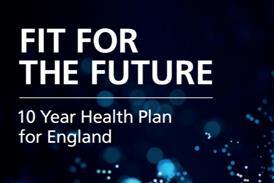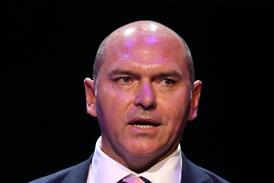The National Institute for Health and Care Excellence’s former chair Sir Michael Rawlins has criticised NHS commissioners for ‘poorly implementing’ the body’s guidelines but said making them mandatory would be ‘counterproductive’.
Asked by HSJ about shadow health secretary Andy Burnham’s suggestion that he would consider making NICE’s guidelines mandatory if Labour won the general election, Sir Michael said some flexibility was necessary.
Sir Michael, who chaired NICE from its formation in 1999 until April 2013, said: “The guidelines are guidelines, not tramlines.

“When I used to work at NICE I used to reckon that about 80 per cent of patients would fall within a guideline but there were 20 per cent, for all sorts of very good reasons, that wouldn’t. You had to let the patient’s healthcare provider ultimately make the judgment with the patient.
“So any mechanism that would force people to always do what it said on the guideline would be counterproductive.”
He added: “On the other hand, there have been occasions when guidelines have really not been very well implemented purely [on the] grounds of cost really. Probably the poorest implemented one was on the grounds of fertility… particularly IVF.”
Sir Michael said he was “particularly sensitive” to the issues around IVF for family reasons. “This is no secret, my daughter has three little children who are the result of IVF,” he said.
Asked about the widely held view that if NICE guidelines were followed it would heap intense financial pressure on the NHS, he said: “There is that problem too, but by and large, when NICE does the guidelines it looks at the cost effectiveness.”
Mr Burnham told HSJ in October that he wanted to “strengthen” NICE’s role and he “wouldn’t rule out” making its guidelines, which cover a range of issues from medicines and devices to staffing levels, mandatory.
Sir Michael was speaking to HSJ two months after he took up the role as chair of the Medicines and Healthcare Products Regulatory Agency.
Sir Michael’s appointment comes at a critical time for the agency, whose role is under scrutiny as part of the government’s innovative medicines and medical technology review, which ministers announced plans for in November.
HSJ understands ministers have already selected a chair for the review, which is being jointly run by the Department of Health and the Department of Business, Innovation and Skills, and that an announcement on the appointment is imminent.
The review will consider how to speed up patient access to cost effective and innovative medicines, devices and diagnostics.
Sir Michael said he fully supported the broad aims set out by ministers and that the current length of time and cost of developing new drugs was “unsustainable”.
He said he would be willing to join the review panel “if they asked me”.
While Sir Michael said he did not want to not pre-empt the review by suggesting ways in which the agency’s role could change, he said the system, whereby the agency approves medicines and devices and NICE addresses their cost effectiveness for the NHS, should remain.
“It’s very important to separate the issue of quality, safety and efficacy, and cost effectiveness,” he said.
He added that the agency’s priority areas for the “next one to two years” would be regulations around clinical trials, medical devices and cell therapy, as well as its ongoing efforts to shut down websites and other providers selling unlicensed drugs.



























No comments yet